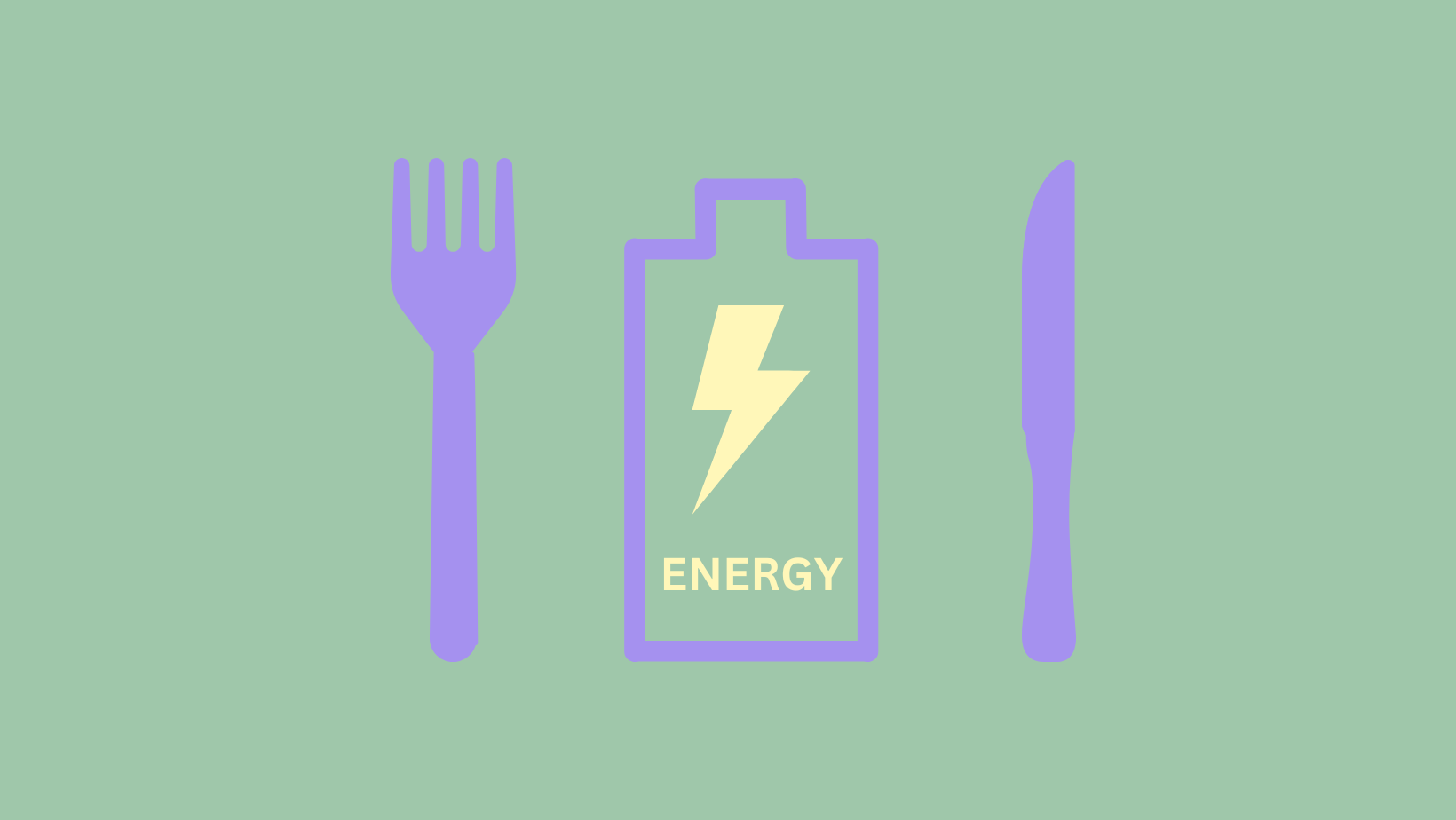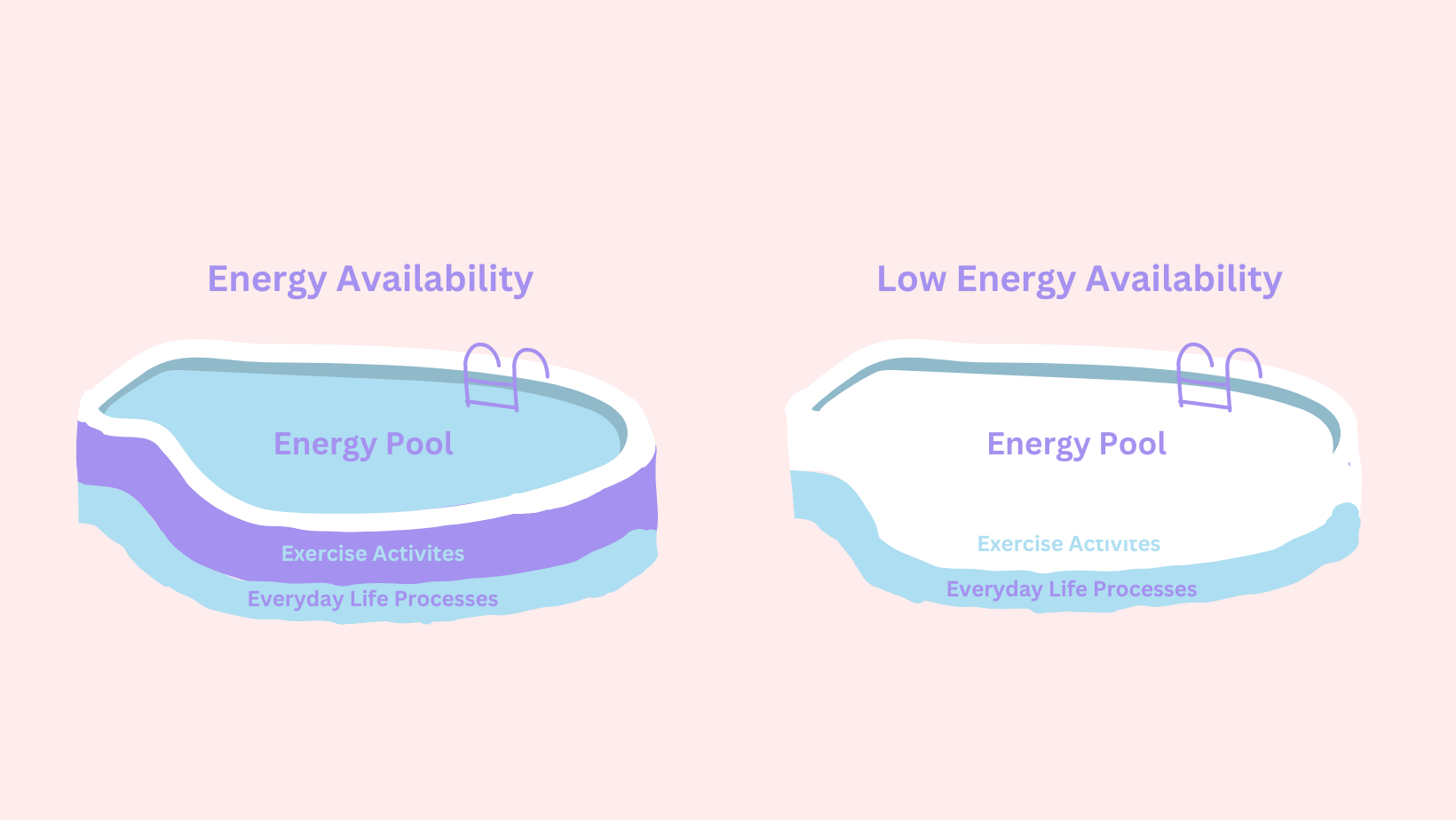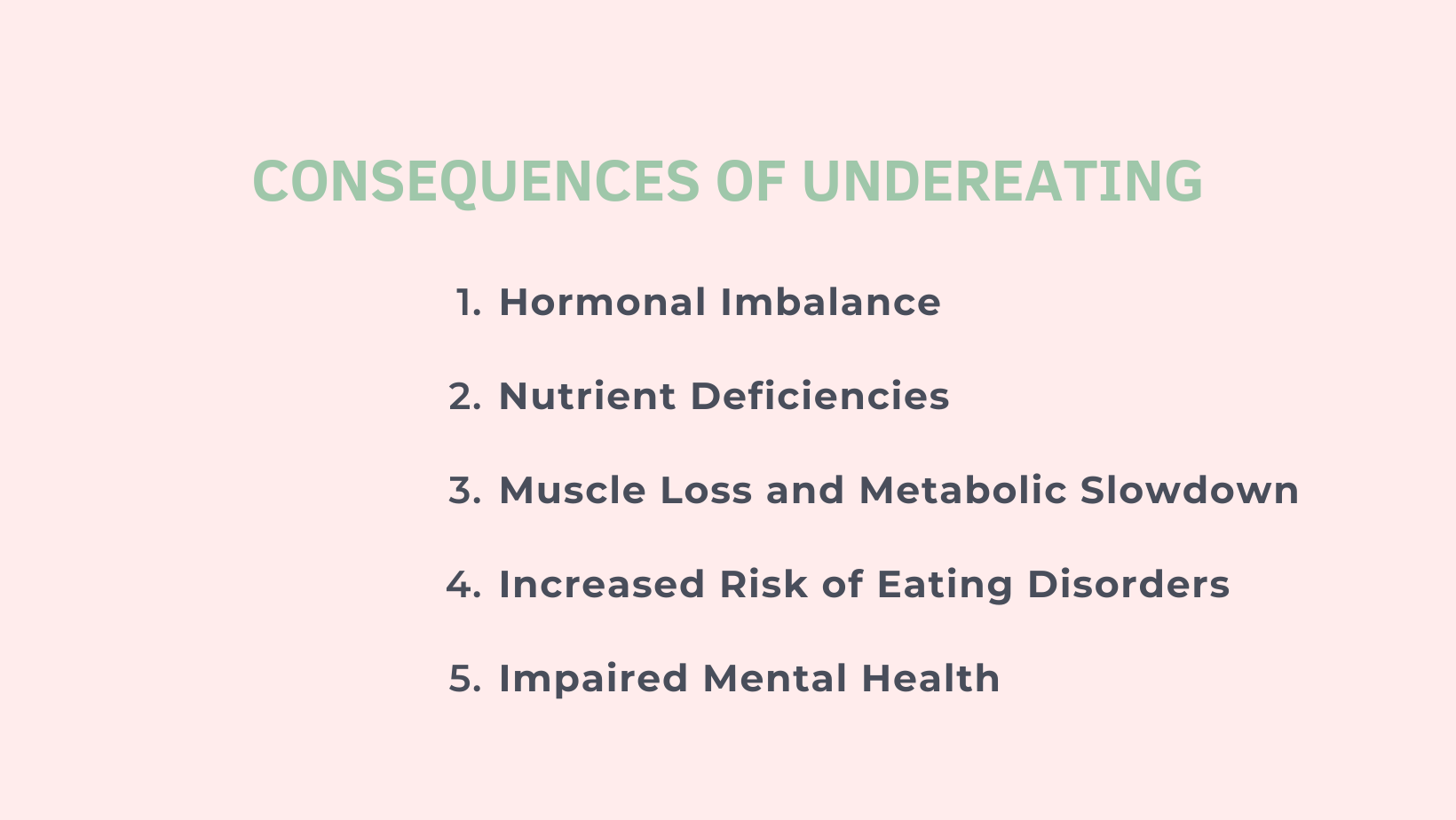Are You Eating Enough?

Over the last few weeks, I have had a few conversations about calories. Women count calories to lose weight or avoid fat so they won't gain weight.
Let me get one thing straight right away:
Everyone needs energy in the form of calories to stay alive, even if they do not leave their bed. Opening this newsletter and reading it requires extra energy in the form of calories.
Modern (read: diet) culture has taught women that calories must be earned, avoided, and "burned off." However, when we truly understand that calories are the energy that allows us to thrive and survive, we gain a sense of empowerment over our health and well-being.
Consider an "energy pool" containing all the energy we take (through food and drinks). This energy pool must meet specific demands so your body can function normally AND meet your activity demands. It's in our hands to maintain this balance.
When we remove the energy needed to cover our exercise activities, the energy for everyday life processes is left. This is called energy availability (EA). Suppose someone isn't eating enough calories to meet the daily energy requirements (not enough energy going in), or there's an increase in energy used without an increase in calorie intake (e.g., too much energy going out through exercise). In that case, the body goes into a low EA (LEA) state.

LEA is like the energy-saving mode on your phone: the light is dimmed, the device slows down, and some apps won't even open. The same thing happens to your body: certain functions that are not immediately life-sustaining, such as a regular menstrual cycle or the ability to conceive. Your body doesn't want you to grow a baby when you can't even maintain all the necessary functions for yourself.
Not consuming enough calories to meet the body's energy needs can significantly negatively impact women's health.
Hormonal Imbalance
Hormonal imbalance is just one result of energy deficiency. You can work out all you like, take all the supplements in the world, drink all the shakes, and do all the recovery techniques such as sauna, cold plunge, and cryotherapy. Still, if your nutrition isn't right, you set yourself up for failure, and the chances are high that your menstrual cycle won't work as planned; you may even miss your period, and it's harder to get pregnant.
We also need to change our perception of fats. Fats have been demonized for a long time. Fats are the building blocks of hormones, so they have a dependent relationship. This study even shows that dietary fat intake could impact ovulation and, therefore, one’s ability to get pregnant. This also means that we shouldn't fear fats or the calories that come with them because they allow our bodies to grow, repair, menstruate, and recover.
Nutrient Deficiencies
Inadequate calorie intake often correlates with deficiencies in essential nutrients, including vitamins, minerals, and macronutrients (carbohydrates, proteins, and fats). These nutrients are critical for various physiological processes, including immune function, bone health, cognitive function, and hormone regulation. Deficiencies can lead to various health issues, including weakened immunity, poor bone health, impaired cognition, and compromised overall well-being.
Muscle Loss and Metabolic Slowdown
Without adequate fuel, the body may break down muscle tissue for energy, leading to muscle loss and decreased metabolic rate. This can result in reduced lean muscle mass, diminished strength and endurance, and a slower metabolism, making it harder to maintain a healthy weight and body composition. It can also mean that you may gain weight more easily. A recent study on female athletes shows that small reductions in body mass DON'T increase physical performance.

Increased Risk of Eating Disorders
Chronic underfueling, combined with societal pressure to achieve unrealistic body standards, can contribute to disordered eating patterns and the development of eating disorders such as anorexia nervosa, bulimia nervosa, or orthorexia. The Minnesota Starvation Experiment showed that people experiencing a prolonged caloric deficit think about food constantly, causing people to become obsessed with food over time and increasing the risk of developing eating disorders.
Impaired Mental Health
Underfueling can negatively impact mental health. Studies show that poor nutrition may lead to mood swings, irritability, anxiety, and depression. This also means that improving diet may help to protect not only physical health but also mental health. The effects of certain foods or dietary patterns on your blood glucose and the gut microbiome may play a role in the relationships between food and mood. I recently wrote about gut and mental health and how to best support it.
The Summary
Calorie deficits can help many people reach their target weight and health goals. But as always, there is no one-size-fits-all for staying healthy. And if you only focus on calories, you're unlikely to achieve sustainable weight loss results. Underfueling is detrimental to women's health as it can lead to a variety of negative consequences without any benefits.
You need to ensure that whatever changes you make, you're also eating enough (quality) food for your body.
Women must prioritize adequate and balanced nutrition to support overall health, well-being, and optimal body and mind functioning.
